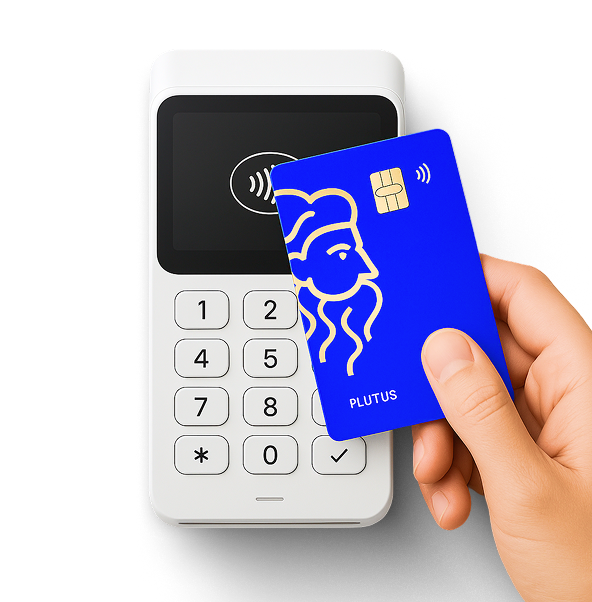
In 2015, there were no successful decentralised trading platforms available. Whilst a few concepts had emerged, none had mastered the challenges of a DEX. Despite the widely known security benefits, the upsides were often outweighed by the lack of usability.
We announced theconceptof Plutus around the same time and it has been a long-term mission of ours to deliver a user-friendly DEX for both web and mobile. Through a great deal of research and development, we can proudly reveal the arrival of this to our most recent mobile update. The PlutusDEX is now available on bothiOSandAndroid, meaning you can quickly and securely convert your crypto whilst on-the-move.
Whilst a DEX in itself is not a new concept, we have created ours in a unique way with features that make this release of some importance. Here are some of the qualities that make the PlutusDEX so significant. Although there are many DEX’s offered on web platforms, it is rare to see a fully non-custodial exchange available on a smartphone device.
This is largely because DEX’s can be cumbersome in their use, frequently requiring copy and pasting or additional tabs open. We have resolved this so you can seamlessly convert crypto/fiat in-app. Members can connect their external wallet to the Plutus app by entering their seed phrase.
You can disconnect this wallet at any time, or, you have the option of saving it for quick access whenever you log in. By connecting your personal cryptocurrency wallet to the Plutus app, you can manage your crypto through the Plutus interface, all without revealing any personal information relating to your wallet. The seed phrase is encrypted in your device meaning we never have access to it and you remain the sole owner of your private keys at all times.
This completely removes the possibility of company hacks, corruption, or downtime from the equation which is an incredibly appealing security proposition given fraud, misappropriation of funds, exchange hacks and thefts added up to $4.5 billion last year according to aCipherTracereport. We have made buying and selling crypto as simple as possible for you. Whilst buying only requires you to enter the crypto amount and a confirmation, selling cryptocurrency on a DEX ordinarily requires manual input of the receivers wallet address, crypto amount, gwei, and various other details.
We auto-fill all these details so you can seamlessly sell your cryptocurrency on-the-go to fund your Current Account* or your Visa Debit Card. Selling crypto on the PlutusDEX only requires a few clicks. As soon as the transaction is confirmed on the blockchain, you will receive the fiat ready for spending; a process that previously took companies days now takes minutes.
We make sure there are no hidden fees or sneaky costs. There is no premium on the crypto you are purchasing or selling; instead, our exchange takes the average spot rate of all the top exchanges to provide you with a fair market rate. Here is a snippet of our detailedaccounts and tiersannounced last week.
The PlutusDEX is a valuable component of our services and we hope you enjoy this newly arrived feature on mobile. This is the MVP of our new and improved PlutusDEX and we welcome all feedback so we can further improve the experience. Please share your feedback in any of our community channels includingDiscordand we will pay acute attention to the responses to deliver the pinnacle of trading experiences!
Make sure you follow us onMediumto receive the news before anyone else. There is an abundance of exciting content to come which we cannot wait to share with you. Stay tuned!
The Plutus Team Centralised exchanges require you to deposit crypto onto the platform. This cryptocurrency is technically in the possession of the exchange and the users merely have access to it. This is required for them to action immediate trades without the users having to sign the transaction.
When you consider the number of users depositing large amounts of crypto into a single location, centralised exchanges become a target for malicious activity. Many of the most reputable exchanges in the world have been hacked at some point (or even multiple times) which highlights the real-life challenges of storing users’ crypto-assets safely from avid cyber-criminals. Last year, 12 major hacks resulted in over $290m worth of crypto and 510,000 user login details stolen.
Here is a great article covering some of the most well-knownhacks of 2019. A decentralised exchange (DEX) allows users to exchange directly with one another which removes the middle man. This makes for a far more secure alternative.
Instead of hacking a single wallet with everyone’s funds, you would have to hack multiple individual users’ wallets to achieve the same outcome.
No sign up cost! Enjoy a 14-day trial to explore all features.
Simply top up, spend as usual, and start saving with PLUS More.
*Standard physical card issuance fees applicable




